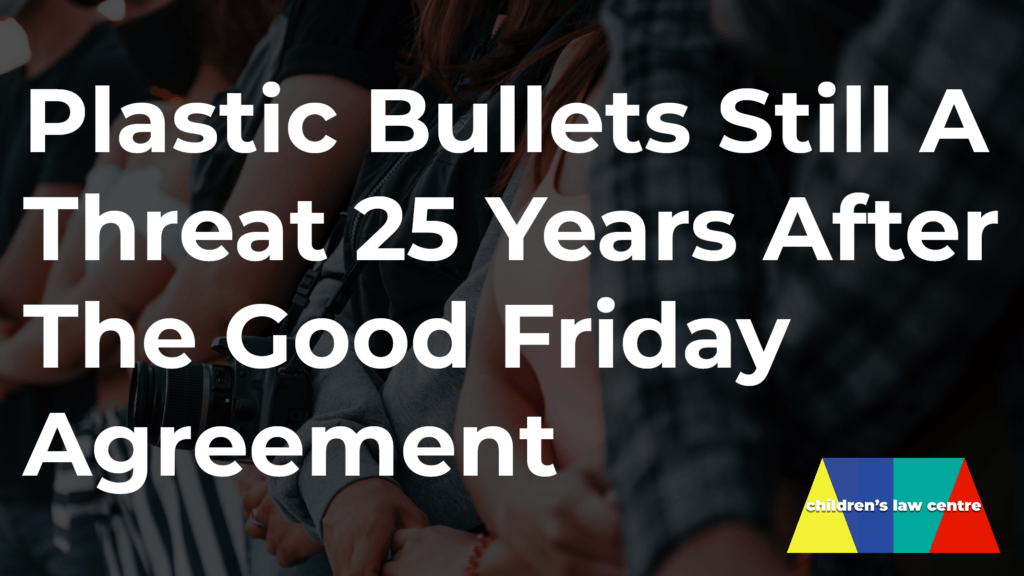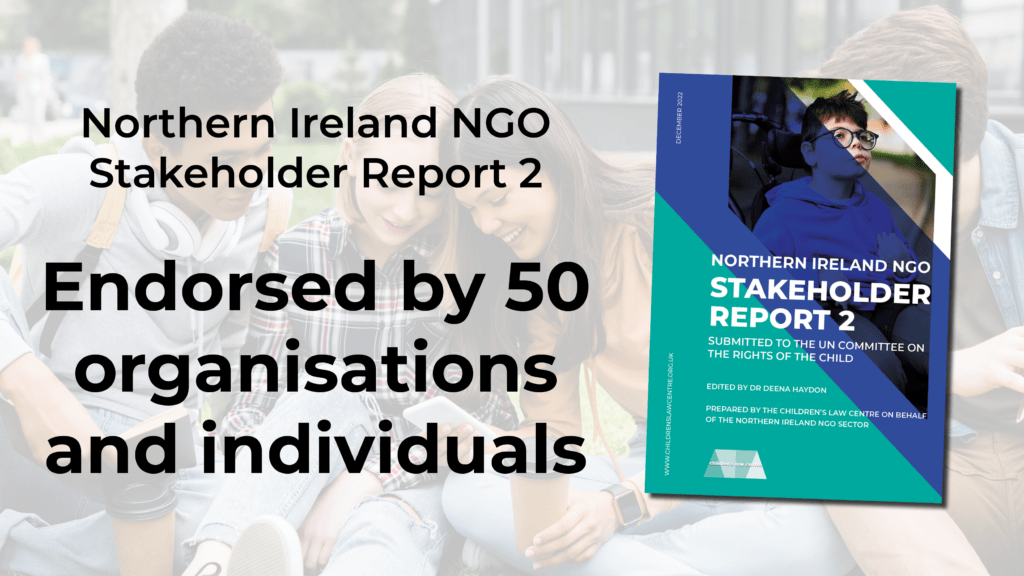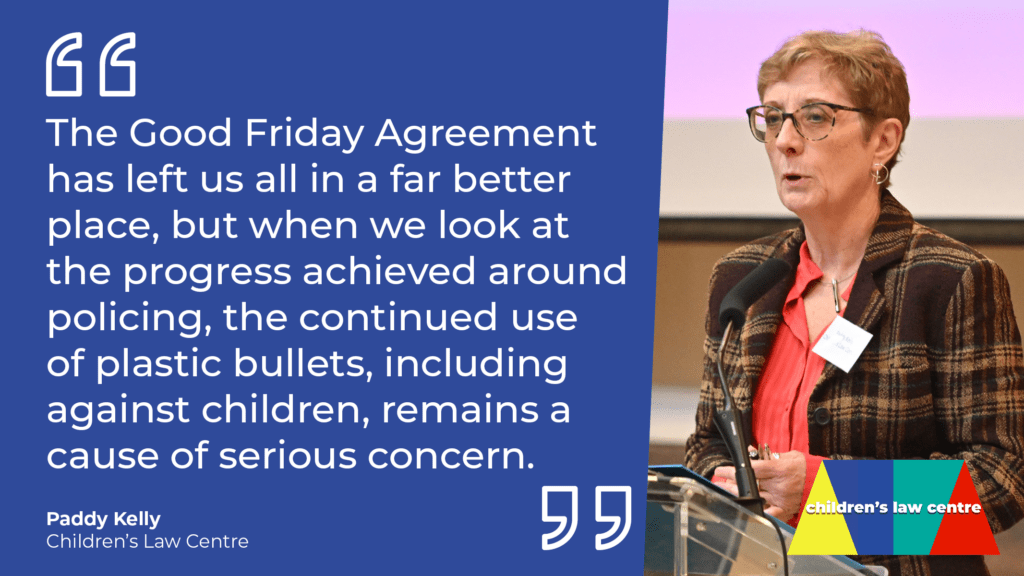Plastic Bullets Still A Threat 25 Years After The Good Friday Agreement
18 April 2023

As we reflect on the 25th anniversary of the signing of the Good Friday Agreement, Paddy Kelly, Director at the Children’s Law Centre, has spoken of her disappointment that Attenuating Energy Projectiles (AEPs), commonly referred to as plastic bullets are still being used on children.
The ‘Patten Report’, provided for in the Good Friday Agreement, reported in 1999 as part of the programme of reform of policing. The report recognised the lethal nature of plastic bullets and recommended that an ‘immediate and substantial investment should be made in a research programme to find an acceptable, effective and less potentially lethal alternative to the Plastic Baton Round’.
Despite this recommendation, and the fact that 17 people including eight children were killed by plastic and rubber bullets during the conflict, AEPs are still used by the PSNI. Northern Ireland is the only jurisdiction in the UK where AEPs are used during public order policing, despite recommendations from international human rights bodies calling on a total ban.

The Children’s Law Centre submitted evidence to the UN Committee on the Rights of the Child in December 2022 and presented to the Committee in February 2023, once again highlighting the continued use of AEPs in Northern Ireland and the dangers they present to children and young people. The UN Committee on the Rights of the Child is due to publish fresh recommendations this year.
Paddy Kelly, Director at the Children’s Law Centre, said:
“The Good Friday Agreement has left us all in a far better place, but when we look at the progress achieved around policing, the continued use of plastic bullets, including against children, remains a cause of serious concern and is not compliant with the recommendations of international human rights bodies.
“The ‘Patten Report’, which flowed from the Good Friday Agreement, recommended investment to find an acceptable, effective and less potentially lethal alternative to the Plastic Baton Round. That has not happened. AEPs of their very nature pose a significant and potentially lethal threat to children and young people.

“It is hard to comprehend why the use of AEPs continues in Northern Ireland, while they are deemed far too dangerous for use in the rest of the UK. Indeed, in 2011, following riots in England, a Home Affairs Committee Report concluded that it would be ‘inappropriate as well as dangerous’ to use baton rounds to police public order disturbances. Yet they continue to be used in Northern Ireland, with the most recent statistics showing they were used on at least one child in the last reporting year.
“We cannot continue to ignore the evidence that the use of AEPs can be lethal. The UN Committee on the Rights of the Child have twice issued strong recommendations, in 2008 and 2016, calling for a complete ban and highlighting the dangers. Twenty-five years after the Good Friday Agreement, the Children’s Law Centre, yet again, have had to raise at the UN Committee on the Rights of the Child the continued use on children of these potentially lethal weapons.
“It is beyond time that we deliver on the Good Friday Agreement, underpinned by rights and equal protection, by finally banning the use of AEPs in Northern Ireland.”

